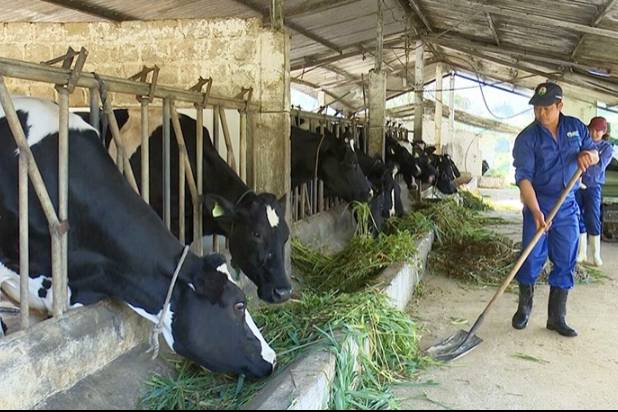From 2023 to 2025, the New Zealand Agricultural Greenhouse Gas Research Centre and the Livestock Research Institute (Ministry of Agriculture and Environment) are collaborating on the project "Enhancing Capacity for Greenhouse Gas Inventory, Measurement, Reporting, and Verification (MRV) in Livestock Emissions in Vietnam."
The New Zealand Ministry of Foreign Affairs and Trade funded the project through various New Zealand government agencies under the ASEAN Climate-Smart Agriculture Initiative.
According to the Livestock Research Institute, Vietnam currently uses Tier 1 emission factors recommended by the Intergovernmental Panel on Climate Change (IPCC) to estimate greenhouse gas emissions from livestock. However, nationally specific emission factors for many sectors, including livestock, are unavailable. Therefore, the initial focus is to complete an inventory of emissions using Tier 1 methods. Simultaneously, developing Tier 2 methods to calculate emissions more accurately will help Vietnam fulfill its commitments to reducing greenhouse gases in the agricultural sector.
 Vietnam is finding solutions to reduce emissions in livestock farming.
Vietnam is finding solutions to reduce emissions in livestock farming.Enhancing the capacity for inventory, measurement, reporting, and verification (MRV) of livestock emissions is essential for meeting international standards and fulfilling Vietnam's environmental protection commitments, emission reduction targets, and sustainable development goals.
As part of the project, the Livestock Research Institute has conducted in-depth studies to assist businesses and industry professionals, ensuring the involvement of specialized agencies for support. The project's core goal is to enhance the technical capacity of the Ministry of Agriculture and Environment in greenhouse gas inventory management and to develop an MRV system for emissions in the livestock sector using international Tier 2 methods.
Agriculture in Vietnam is one of the most vulnerable to climate change and is also a significant source of greenhouse gas emissions, accounting for 13.9% of the country's total emissions. Within agriculture, emissions are primarily concentrated in rice cultivation and livestock. The "Enhancing Livestock Emissions MRV Capacity" project and the Low-Emission Rice Initiative mark significant steps for Vietnam in reducing agricultural emissions in the current phase.